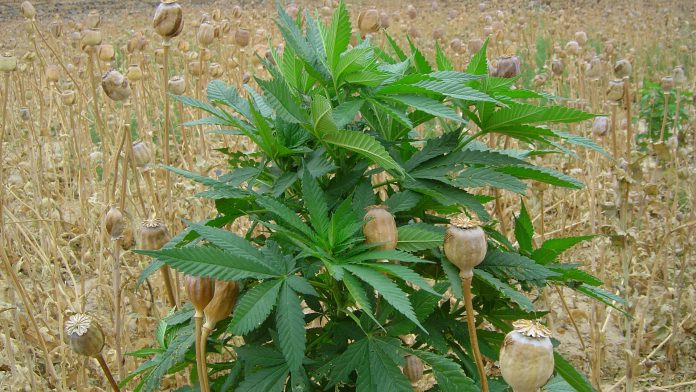
According to research conducted at the Icahn School of Medicine, cannabidiol may have the ability to break the cycle of addiction for those with heroin use disorder.
Published in the American Journal of Psychiatry, research shows cannabidiol (CBD) reduced cue-induced craving and anxiety in individuals with a history of heroin use disorder, suggesting a potential role for it in helping to break the cycle of addiction.
The study also revealed that CBD tended to reduce physiological measures of stress reactivity, such as increased heart rate and cortisol levels, that are induced by drug cues.
Unprecedented epidemic of heroin use disorder
During the past decade, the wide availability and use of heroin and prescription opioid medications in the United States has resulted in an unprecedented epidemic involving more than 300,000 deaths.
Despite this staggering toll, limited non-opioid medication options have been developed. Two of the current options, methadone and buprenorphine, are opioid substitution therapies which work on the same opioid receptors (mu receptors) as heroin and other potent opioid agonists.
These medications, however, carry a stigma as well as their own addiction risk, are hindered in tight governmental regulation, and therefore are underutilised by the millions of people diagnosed with opioid use disorder.
Yasmin Hurd, PhD, the Ward-Coleman Chair of Translational Neuroscience at the Icahn School of Medicine at Mount Sinai, Director of the Addiction Institute at Mount Sinai and first author of the study, explains: “To address the critical need for new treatment options for the millions of people and families who are being devastated by this epidemic, we initiated a study to assess the potential of a non-intoxicating cannabinoid on craving and anxiety in heroin-addicted individuals.”
“The specific effects of CBD on cue-induced drug craving and anxiety are particularly important in the development of addiction therapeutics because environmental cues are one of the strongest triggers for relapse and continued drug use.”
Cannabidiol and heroin use disorder
The study team found that cannabidiol, significantly reduced both the craving and anxiety induced by drug cues compared with neutral cues in the acute term. CBD also showed significant protracted effects on these measures seven days after the final short-term exposure.
In addition, CBD reduced the drug cue-induced physiological measures of heart rate and salivary cortisol levels. There were no significant effects on cognition, and there were no serious adverse events.
The capacity of cannabidiol to reduce craving and anxiety one week after the final administration mirrors the results of the original preclinical animal study, suggesting that the effects of CBD are long-lasting, even when the cannabinoid would not be expected to be present in the body.
“Our findings indicate that CBD holds significant promise for treating individuals with heroin use disorder,” says Dr. Hurd.
“A successful non-opioid medication would add significantly to the existing addiction medication toolbox to help reduce the growing death toll, enormous health care costs, and treatment limitations imposed by stringent government regulations amid this persistent opioid epidemic.”


















